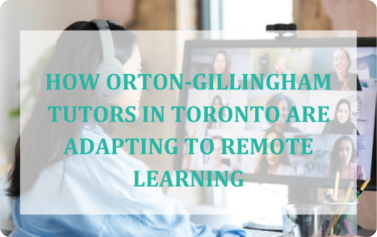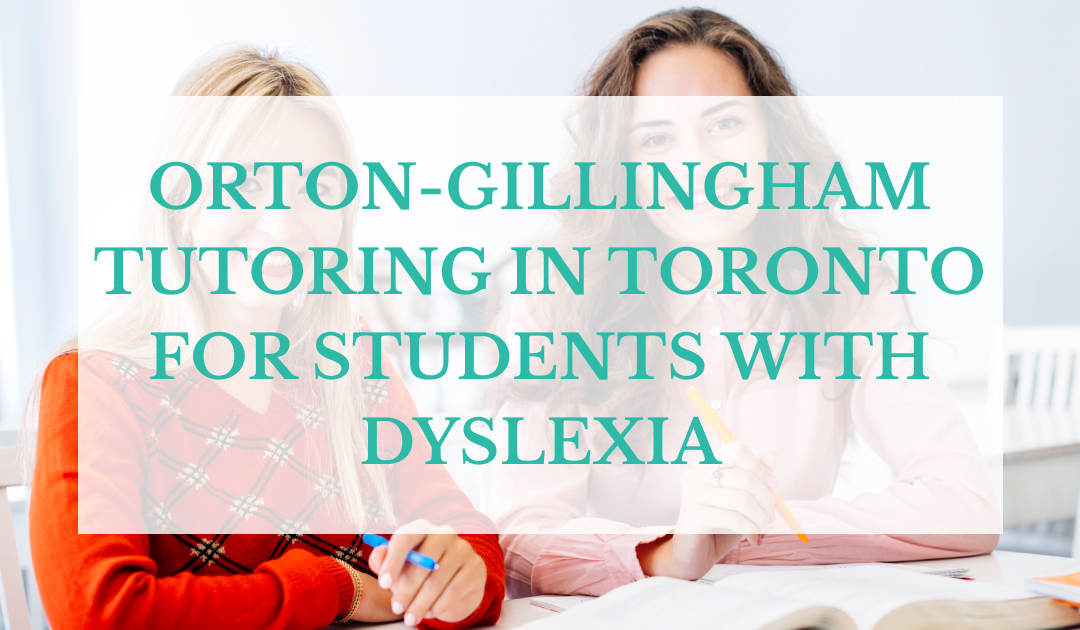
The COVID-19 pandemic brought about unprecedented changes in the field of education, forcing teachers and tutors to adapt quickly to remote learning environments. Among the educators facing this challenge are Orton-Gillingham tutors in Toronto. These dedicated professionals specialize in a multisensory approach to teaching reading, writing, and spelling, often working with students who have dyslexia or other learning differences. In this blog post, we’ll explore how Orton-Gillingham tutors in Toronto have embraced remote learning to continue their vital work.
The Multisensory Challenge

Orton-Gillingham tutoring is highly interactive and sensory-based, relying on tactile, visual, and auditory strategies to help students learn to read and write. The transition to remote learning presented a significant challenge: How can tutors recreate this multisensory experience through a computer screen?
The solution has been innovative and resourceful. Tutors have been using a combination of digital tools, such as interactive whiteboards and screen-sharing applications, to maintain engagement and interactivity. They often ship specialized teaching materials and manipulatives to their students’ homes, ensuring that the multisensory aspect of the Orton-Gillingham approach remains intact.
Customized Lesson Plans

One of the strengths of Orton-Gillingham tutoring is its adaptability to individual student needs. Tutors create customized lesson plans tailored to each student’s unique learning profile. Remote learning has not changed this approach. In fact, it has allowed tutors to be even more flexible, as they can easily adjust their plans based on the student’s progress and feedback.
Virtual platforms also enable tutors to record sessions, providing students and parents with valuable resources for review between sessions. This enhances the effectiveness of the tutoring process, ensuring that learning continues beyond the virtual classroom.
Building a Strong Online Connection
Effective tutoring relies on a strong connection between the tutor and the student. The shift to remote learning has required tutors to invest extra time in building rapport and making students feel comfortable in the virtual space. Video calls and interactive activities have been instrumental in forging these connections, allowing tutors to maintain a supportive and nurturing learning environment.
Professional Development
To adapt to remote learning successfully, Orton-Gillingham tutors in Toronto have embraced ongoing professional development. They have attended webinars and workshops focused on remote teaching techniques, digital tools, and strategies for working with students who have learning differences in a virtual setting.
Support for Parents

Remote learning has also meant increased involvement from parents in their child’s education. Orton-Gillingham tutors have recognized the importance of providing parents with guidance and resources to support their child’s learning journey at home. Regular communication and parent training sessions have become essential components of the remote tutoring experience.
The adaptability and resilience of Orton-Gillingham tutors in Toronto are commendable. In the face of a global pandemic, they have successfully transitioned to remote learning while maintaining the effectiveness and integrity of their multisensory teaching approach. By leveraging technology, customized lesson plans, building strong online connections, investing in professional development, and supporting parents, these tutors continue to make a positive impact on the lives of students with dyslexia and other learning differences. Their dedication serves as an inspiring example of how educators can rise to the challenges of the digital age, ensuring that no child is left behind in their quest for literacy and learning.






